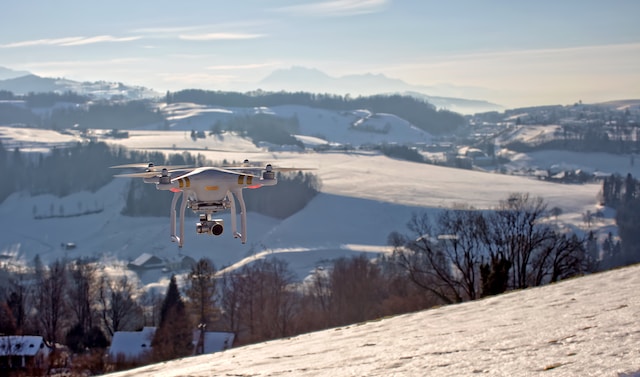Sep 7, 2023
Computers Revolutionizing Agriculture
Modern agriculture is undergoing a transformative shift, and at the heart of this revolution are computers. These powerful machines are revolutionizing the way we cultivate crops, manage livestock, and maximize yields. In this article, we’ll explore how computers are shaping the future of agriculture.
Precision Farming
Targeted Cultivation
Computers enable precision farming by collecting data from various sources like satellites, drones, and sensors. Farmers can utilize this data to make knowledgeable choices regarding planting, irrigation, and fertilization.This reduces waste and increases crop yields.
Automated Machinery
Farm Bots and Drones
Agricultural robots and drones equipped with computer systems can perform tasks such as planting, weeding, and harvesting with remarkable precision. They can work around the clock and cover large areas, reducing the need for manual labor.

Crop Monitoring
Real-time Insights
Farmers use computerized systems to monitor crop health in real-time. Any signs of stress, disease, or pests can be detected early, allowing for targeted interventions. This minimizes the need for chemical treatments and promotes sustainable farming.
Irrigation Management
Efficient Water Use
Computer-controlled irrigation systems ensure that crops receive the right amount of water at the right time. This not only conserves water but also prevents over-irrigation, which can damage crops and deplete groundwater.
Soil Analysis
Data-Driven Soil Health
Computers analyze soil samples and provide detailed information about nutrient levels and pH. This data helps farmers tailor their fertilization strategies, ensuring that crops receive the nutrients they need for optimal growth.
Weather Forecasting
Weather-Responsive Farming
Furthermore, access to accurate weather forecasts is crucial for agriculture. Computers process meteorological data and provide farmers with up-to-date information, enabling them to make decisions about planting, harvesting, and pest control based on weather conditions.
Livestock Management
Healthy Herds
Computers are employed in the management of livestock farms. They monitor the health of animals, regulate feeding systems, and even track the location of livestock in extensive grazing areas.
Supply Chain Optimization
Efficient Logistics
Additionally, computerized systems optimize the supply chain by tracking the movement of agricultural products from farm to market. This reduces waste, ensures freshness, and improves overall efficiency.
Market Analysis
Smart Market Strategies
Farmers can access market data and trends through computers, allowing them to make informed decisions about what crops to grow and when to sell. This minimizes financial risks and maximizes profits.
Sustainability and Conservation
Environmental Responsibility
Computers help farmers adopt sustainable practices. They can create ecological models that simulate the impact of different farming methods on the environment, enabling farmers to choose approaches that minimize harm.
The Future of Agriculture
Continual Advancements
The integration of computers in agriculture is an ongoing process. With the development of artificial intelligence and the Internet of Things (IoT), we can expect even more sophisticated and interconnected systems that will further enhance productivity and sustainability.
Conclusion
In conclusion, computers have become indispensable tools in modern agriculture, reshaping the industry from the ground up. With precision farming, automated machinery, and data-driven decision-making, agriculture is becoming more efficient, sustainable, and profitable. As technology continues to advance, the partnership between computers and agriculture promises an exciting future of innovation and abundance.
More Details